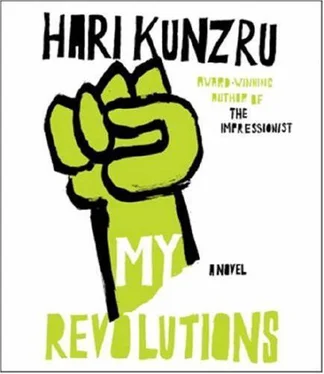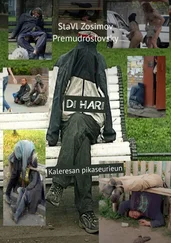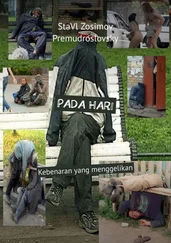“You’re sure, Brian? You always had strong opinions about décor.”
I heard Jay snicker behind me. Among other things, Brian lacked a sense of humor and, like most humorless people, he was always watching out beadily for perceived slights, the jokes he knew he wasn’t getting.
“Don’t talk to me that way. I’m your elder brother.”
“Fuck off, Brian. I didn’t ask you to come here.”
“Is there somewhere private we can talk?” He gestured at Jay, who was hovering in the doorway. Matthias was in the background, wrapped in a blanket. I think he was hoping Brian would leave so he could go back to sleep. My brother adopted an air of high seriousness. “I don’t want to discuss family business in front of people like that.”
“Like what?” asked Jay, mock-innocently.
“You know exactly what,” growled Brian.
“Right,” I told him. “Get out. I don’t know why you came here, but now I want you to piss off back to your office. Haven’t you got customers to rob or something?”
I didn’t think it was possible for his color to deepen any further. “You’re so bloody arrogant,” he spat. “Look at yourself. Got up in those wretched clothes, hair all over the place.”
“Don’t know if it’s a boy or a girl,” tutted Jay. Brian turned on him. “Just helping you with your lines,” Jay offered.
At that point Brian almost lost control. I had to step between them. “Don’t you dare.”
“Get that — creature out of here.”
“Jay, I’m sorry. Leave it to me. I’ll get rid of him.”
Brian put his face very close to mine. “I don’t know what Dad’s going to say when he sees you.”
“I don’t give a damn what he says. And I don’t give a damn what you say either. Fuck off, Brian. Fuck off and leave me in peace.” “So you’re going to force me to do this in public?”
“Force you? What the hell are you on about? What are you doing here?”
“Mum’s dead.”
Brian’s little triumph. You could see the poorly concealed pleasure on his face. Living the scene as if it were some ghastly Victorian genre painting. The prodigal brother chastised . The extent of his self-righteousness rolled out in front of me like a carpet. I was furious. The way he’d come: unasked, wreathed in sanctimony.
I bet he’d spent three days looking for me, the sick bastard. I bet it was worth it to him.
“How?” I asked, making my voice as flat as I could.
“The hospital says she had a stroke. I thought maybe you still cared enough to want to come to the funeral.”
I fought back my anger. I had no room, really, to think about Mum. It was all Brian.
* * *
At the crematorium, no one spoke to me. My father saw my jeans and refused to shake my hand. Of course I’d done it on purpose. The battered leather flying jacket with the tear in the back. The unwashed hair. The building was neutral and discreet. A few middle-aged people in sober clothes had come to pay their respects, filling the pews so that later on someone would fill the pews for them. There was a representative from the hospital, a couple of neighbors. It was just another transaction to most of them, conducted in the same detached manner as one might renew a passport or open a savings account. Hats for most of the women. Cigarettes smoked outside, at a discreet distance from the hearse. None of them had really cared about her. How could I not hate it? How could I not hate myself for being part of it?
Brian hadn’t trusted me to make it on my own. He was right: if he hadn’t sent his friend to pick me up, I wouldn’t have gone. The friend was called Bob or Dave or Phil. He looked just like Brian: sideburns, drinker’s red chops. “Are you coming like that?” he’d asked, winding down the window of his Cortina.
When he saw me Brian hissed at Bob-Dave-Phil, who blocked his way with a raised arm. Go on, I thought. Take a swing. You want to so much, but it wouldn’t do. Decorum . Disrespectful to Mum.
The curtain was operated by some kind of automated pulley system. To the sound of a crackly recording of organ music, it jerked its arthritic way along a brass rail, concealing the coffin from view. As an attempt to shield us from the finality of death it was ineffective. When it was over I tried to speak to Dad. One last chance for us. I touched him on the shoulder.
“You did this,” he told me. He meant Mum.
His petty, vicious tone still transmits clearly to me today. I didn’t
answer, “What about you, Dad?” or any of the other things it has since occurred to me I could have said. And because I couldn’t find any words, I walked away. I suppose it goes without saying that I never saw him again. Or Brian. After that, there was just me.
Collectivity. That’s what Saul called for in his speech to the VSC activists. That’s what he said the British lacked. A couple of days later he was gone, his bedroll and kit bag packed and shifted, his argumentative bulk absent from the kitchen. But he left that point of view behind him. No one had wanted to hear it. I listened to a cacophony of voices, all shouting that their particular project, their thing was a genuine example of community, throwing a lot of jargon at Saul to prove that he was wrong and, anyway, they were cleverer than he was. I thought he had it about right. Perhaps it wasn’t our fault. We were in a church hall and somehow that made everything we were doing absurd, just a bunch of people pushing each other around, like a Scout troop. How could we even think of making something new for ourselves when there were metal-framed chairs stacked at the sides of the room and a piano under a canvas cover in the corner? In England the power structure had fastened its roots right down to the bedrock; every inch of land, every object on which you rested your eyes spoke about the past, about how many people had gone before you and how insignificant their individual efforts had proved. It was all designed to stop us from coming together. All of it. And that meant it couldn’t be rejected partially. If it was going to be changed, it would have to be changed beyond all recognition.
That October, I decided I wasn’t going back to university and would dedicate myself full time to political work. A second large antiwar demonstration was planned. After my arrest in the spring I wasn’t sure I wanted to attend, but my friends persuaded me that it was important. Displaying solidarity on the streets was a way to make our politics visible to the masses. Every day, how many thousands of pounds of bombs? How much napalm? How many burned children? How many villages destroyed? They said I shouldn’t allow myself to be intimidated.
At a planning meeting there was a bad-tempered argument about the proposed route. The organizers insisted that a repeat of the violence in March would be counterproductive so it was moved that we’d walk along the Embankment to Whitehall, staying well away from Grosvenor Square and the U.S. embassy. A lot of us weren’t happy about that. Surely the point wasn’t to lobby the British government but to send a message to the Americans, to show that even in a country that was supposedly their ally, the people supported a Vietnamese victory. Wrong, said others. A riot would dominate the news coverage at the expense of the issues. Personally, I thought the papers would be against us whatever we did. There were already hysterical articles running almost every day, building up the march as a full-scale insurrection. Despite my militancy, I was privately pessimistic. I didn’t believe that a protest, violent or not, would change anything. British men weren’t getting drafted, let alone fighting for their freedom. People seemed half asleep. My sense of futility was deepened by the group of neatly dressed men sitting at the back of the meeting, taking notes. They were obviously from the police or secret service. What was the point of making plans that would be immediately relayed to the authorities?
Читать дальше












